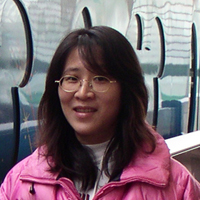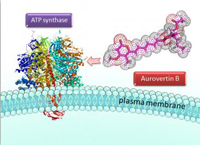::: NTU Research Team First Discovered that Blocking Key Energy Protein Could Kill Cancer Cells—Reported by Science Daily as a Weekly Hot News Topic for American Chemical Society
|
The newest research results achieved by a team led by Associate Professor Hsueh-Fen Juan of the Department of Life Sciences, discovered that blocking key energy protein enzyme could effectively inhibit the growth of cancer cells. Her new findings were published in J. Proteome Res (2008), and were chosen by American Chemical Society as a weekly hot news topic, and posted on the Science Daly Website. Thus, it is beyond a doubt that NTU's research achievements in the area of life science have received international recognition!
On March 31st, Science Daily reported that researchers from Taiwan first discovered that blocking key energy protein could kill cancer cells, and that ATP synthase inhibitors in the future could be used for medical testing purposes, possibly providing a newer and more effective anti-cancer treatment process.
In this newest research report, Professor Juan and her colleagues focused on ATP synthase, a key protein involved in producing the energy-rich molecules of ATP that power all life process. For years researchers thought that the protein only existed in mitochondria, structures located inside the cells that convert nutrients into energy, but recent studies found high levels of ATP synthase on the surface of cancer cells, but until now the medical implications went unexplored.
|
Associate Professor of Life Science Miss Hsueh-fen Juan
Professor Juan's research team first discovered that blocking key energy protein could kill cancer cells, a discovery that could lead to the development of a newer and more effective anti-cancer treatment process.
|
The research team analyzed tissue samples from breast cancer patients and found for the first time that the surface of breast cancer cells contained high levels of ATP synthase. In cell studies, exposing breast cancer cells to a substance that blocks ATP synthase killed the cancer cells but did not harm normal cells. The findings suggest that ATP synthase inhibitors may represent a new approach for fighting breast cancer and other cancer types.
This research result has attracted the attention of foreign science media , showing that the level of NTU's research in life science is on a par with international standards. Members who participated in Professor Juan's team include graduate students from the Institute of Molecular and Cellular Biology miss Tsui-ching Hwang and Miss Hsin-yi Chang, Associate Professor Chun-hua Hsu from the Department of Agricultural Chemistry, Doctor Wen-hon Kuo from the Surgical Departmnet of NTU Hospital, and Professor King-jen Chang from NTU's Angiogenesis Research Center. Their successful endeavor is a shining example of the cross-disciplinary research going on at NTU.
※References and Websites
- "Targeting Therapy for Breast Carcinoma by ATP Synthase Inhibitor Aurovertin B" Journal of Proteome Research. April 4, 2008.
- American Chemical Society Press Release; "Blocking Key Energy Protein Kills Cancer Cells, First Evidence Provided".
- Website of Science Daily;
Copyright 2008 NTU Secretariat
|



